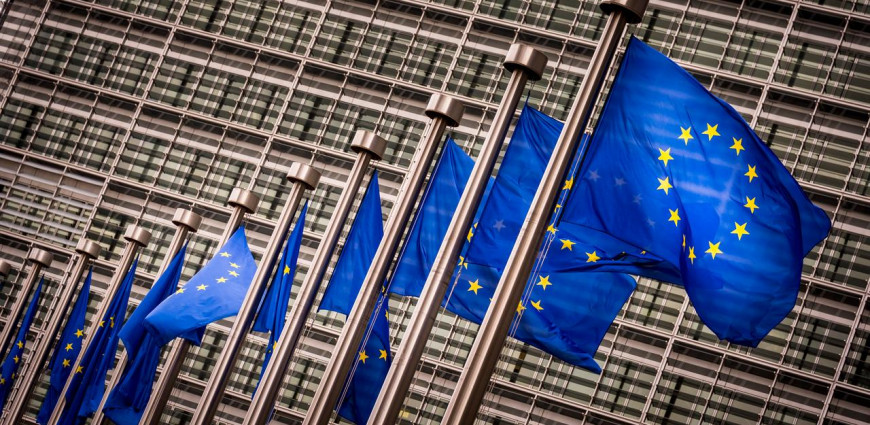After the European Council’s budget compromise in July, busy months lie ahead to finalise the EU budget deal and assure a timely start of the new EU programmes.
The EU institutions are slowly emerging from the summer break, getting ready to continue the work left off in late July. The German Presidency helped deliver an important first step towards the coming generation of new EU programmes on 21 July: The Member States agreed on the multiannual financial framework (MFF) for 2021-2027 and on the recovery instrument Next Generation EU (NGEU) designed to help Europe cope with the recession caused by COVID-19. The Member States’ budget proposal includes EUR 1’074.3 billion for the MFF and EUR 750 billion for NGEU. While there was a big sigh of relief that a compromise was finally possible, the education, research and innovation (ERI) communities are unhappy with the cuts that the Member States foresee in their domains, compared to the European Commission’s (EC) original budget proposal. The disappointment translated quickly into resistance in the European Parliament (EP) against accepting the European Council’s deal unchanged. As the EP will have to agree to the EU budget and help pave the way for the first time that the EU would borrow money on financial markets for its expenditures, as is the case for NGEU, it can still influence the final ERI budgets. Before the summer break, EC President Ursula von der Leyen had proposed to start regular meetings from mid-September with German Chancellor Angela Merkel and EP President David Sassoli to ensure a strong coordination and facilitation of the process towards the EU’s budget for the coming years.
The new budget remains also the main hurdle for the finalisation of the legislation for the upcoming programmes. For Horizon Europe, the common understanding on the regulation from spring 2019 was not finalised with respect to the budget because this requires the completion of the MFF. Other provisions that are not finalised yet include the association of third countries and synergies of Horizon Europe with other programmes, which depend on progress in other files. Furthermore, the timely start of Horizon Europe requires the adoption of the programme’s Strategic Plan 2021-2024 and the Work Programmes, which in turn depend on the adoption of the regulation establishing Horizon Europe. In the case of the Erasmus+ programme, the budget is not the only prerequisite for the adoption of the legislative basis. The ongoing trilogue negotiations between the Council, the EP and the EC also include governance issues.
The details of the implementation of NGEU funded efforts will also keep the institutions busy this autumn. The EC’s proposal for NGEU not only foresees to help Member States recover from the recession, but also help them to become more resilient by investing in a future-proof economy. This includes a focus on the EC’s twin priorities of the “European Green Deal” and “Europe fit for the Digital Age” and therefore calls for investments in the respective ERI fields.
With the European Green Deal Call expected to open in mid-September, the coming weeks will also see the last large call under Horizon 2020. The call enables the European research and innovation communities to contribute in a substantial way to the EC’s priority to create a climate neutral Europe until 2050. There will be 11 call areas, ranging from clean energy to biodiversity and agriculture to empowering citizens in the transition towards climate neutrality.
The EU’s research institutions also saw a significant personnel development just before the summer break: Jean-Pierre Bourguignon came back on 27 July to chair the European Research Council (ERC) once again, this time as President ad interim, after he originally retired in December 2019. He brings stability for the months ahead, after the ERC was without a President with the abrupt departure of Mauro Ferrari in early April. Bourguignon will be in office until the next ERC President is selected.
This autumn will also see a continuation of the discussions on the future of the European Research Area (ERA). After the research communities on national and EU level have presented their ideas for a renewal of the ERA in spring, it is expected that the EC will present its Communication on ERA in the coming weeks. The German Presidency strives to adopt Council Conclusions on ERA later in the autumn. A goal of the renewed ERA is to make European society and economy more resilient to cope with pandemics and other global challenges. The strengthening of the ERA will require a stronger commitment of national governments to invest into their research sectors and it is a goal for the renewed ERA to include more synergies to the European Education Area (EEA). The EC is planning to publish a Communication on the latter as well in the coming weeks – as is also the case for the new overarching strategic framework for European cooperation on education and training (post-ET2020).
In education, autumn will be under the sign of vocational education and training (VET), a priority for the German Presidency. In July, the EC already presented a Proposal for a Council Recommendation on VET as part of the new European Skills Agenda . The VET recommendation will be negotiated and shall be adopted in autumn. The German Presidency also plans to strengthen VET via a new impetus to the Copenhagen process, planning a declaration on VET in mid-September when VET ministers will meet in Osnabrück (Osnabrück Declaration). Digital education will be of significance in the coming weeks and months too. The consultation on the new Digital Education Action Plan (DEAP) is still open until 4 September. The EC is expected to present the updated DEAP in the coming weeks.

